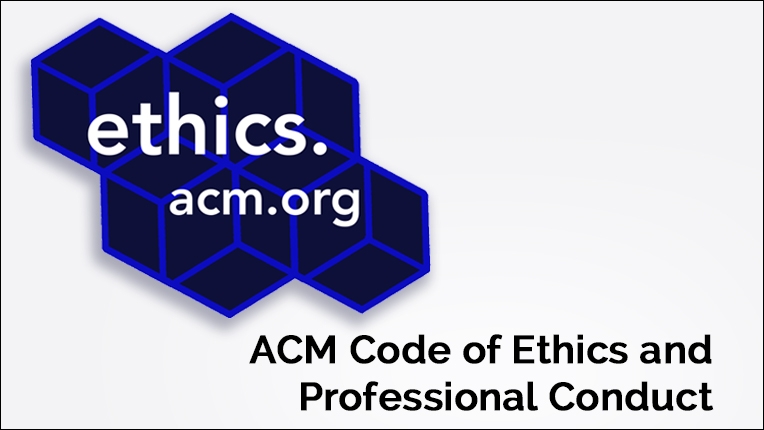Guidelines for Professional Conduct in Information Processing (1966)
Note: This version of the code is deprecated, and presented for historical reference only. The latest version of the code is the 2018 version.
This information is as reported in: Parker, Donn B. “Rules of ethics in information processing.” Communications of the ACM 11.3 (1968): 198-201. doi: 10.1145/362929.362987
Adopted by the ACM Council on Nov. 11, 1966, and superseded by the 1972 code.
Note: The following was copied from Parker’s article via optical character recognition, and may contain errors in transcription. If you see mistakes that need correction, please report them via the Contact Us form.
INTRODUCTION
This set of guidelines was adopted by the Council of the Association for Computing Machinery on November 11, 1966 in the spirit of providing a guide to the members of the Association. In the years to come this set of guidelines is expected to evolve into an effective means of preserving a high level of ethical conduct. In the meantime it is planned that ACM members will use these guidelines in their own professional lives. They are urged to refer ethical problems to the proper ACM authorities as specified in the Constitution and Bylaws to receive further guidance and in turn assist in the evolution of the set of guidelines.
PREAMBLE
The professional person, to uphold and advance the honor, dignity and effectiveness of the profession in the arts and sciences of information processing, and in keeping with high standards of competence and ethical conduct: Will be honest, forthright and impartial; will serve with loyalty his employer, clients and the public; will strive to increase the competence and prestige of the profession; will use his special knowledge and skill for the advancement of human welfare.
1. Relations with the Public
1.1 An ACM member will have proper regard for the health, privacy, safety and general welfare of the public in the performance of his professional duties.
1.2 He will endeavor to extend public knowledge, understanding and appreciation of computing machines and information processing and achievements in their application, and will oppose any untrue, inaccurate or exaggerated statement or claims.
1.3 He will express an opinion on a subject within his competence only when it is founded on adequate knowledge and honest conviction, and will properly qualify himself when expressing an opinion outside of his professional field.
1.4 He will preface any partisan statement, criticisms or arguments that he may issue concerning information processing by clearly indicating on whose behalf they are made.
2. Relations with Employers and Clients
2.1 An ACM member will act in professional matters as a faithful agent or trustee for each employer or client and will not disclose private information belonging to any present or former employer or client without his consent.
2.2 He wilt indicate to his employer or client the consequences to be expected if his professional judgment is over-ruled.
2.3 He will undertake only those professional assignments for which he is qualified and which the state of the art supports.
2.4 He is responsible to his employer or client to meet specifications to which he is committed in tasks he performs and products he produces, and to design and develop systems that adequately perform their function and satisfy his employer’s or client’s operational needs.
3. Relations with Other Professionals
3.1 An ACM member will take care that credit for work is given to those to whom credit is properly due.
3.2 He will endeavor to provide opportunity and encouragement for the professional development and advancement of professionals or those aspiring to become professionals with whom he comes in contact.
3.3 He will not injure maliciously the professional reputation or practice of another person and wilt conduct professional competition on a high plane. If he has proof that another person has been unethical, illegal or unfair in his professional practice concerning information processing, he should so advise the proper authority.
3.4 He will cooperate in advancing information processing by interchanging information and experience with other professionals and students and by contributing to public communications media and to the efforts of professional and scientific societies and schools.
Previous Versions of the Code
For historical purposes, we preserve the prior versions of the code.
ACM Code of Ethics
The ACM Code of Ethics and Professional Conduct was updated in 2018 to address the significant advances in computing technology since the 1992 version, as well as the growing pervasiveness of computing in all aspects of society.
